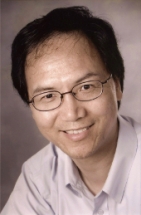Back to Editor profile » Prof. Dr. Wei Duan
Prof. Dr. Wei Duan

Prof. Dr. Wei Duan
Associate Editor: Professor Wei Duan
Professor Wei Duan graduated with a MD from Shanghai University of Chinese Medicine and obtained his PhD in biochemistry and molecular biology at University of Melbourne in 1991. He is currently a professor of cancer therapeutics at Deakin University School of Medicine in Melbourne, Australia.
His early work explored the role of protein kinase C in cancer signaling. He and co-workers are the first to show the deletion of the p16 gene in brain tumours during the progression of astrocytomas (Cancer Research. 55: 20-23, 1995). Professor Duan has provided the first demonstration that protein kinase C-alpha plays a tumour-suppressor role in the pathogenesis in pituitary tumours (Cancer Res., 65: 4520-4524, 2005). He has published more than 140 original research papers and review articles in peer-reviewed international journals.
Recently, Professor Duan’s laboratory focused on the development of novel therapeutic platforms for effective targeting cancer stem cell in vivo. Professor Duan is a pioneer in developing RNA aptamers (chemical antibodies) for targeted drug delivery and molecular imaging in Australia. He and his team were the first to have developed RNA aptamers against cancer stem cell markers, enabling effective delivery of siRNA to cancer stem cells in vivo. In addition, he holds four patents of cancer stem cell targeting aptamers. Recently, in collaboration with Professor Jester Wengel from University of South Denmark, Professor Duan has developed the world’s smallest aptamer using the locked nucleic acids- and unlocked nucleic acids-modified aptamer technology for targeted therapeutics. As a world leader in the field of targeted delivery of cancer therapeutics, Professor Duan has been frequently invited to address international scientific conferences in recent years and has served as a member of multiple grant review panels as well as on the editorial boards of multiple journals.
